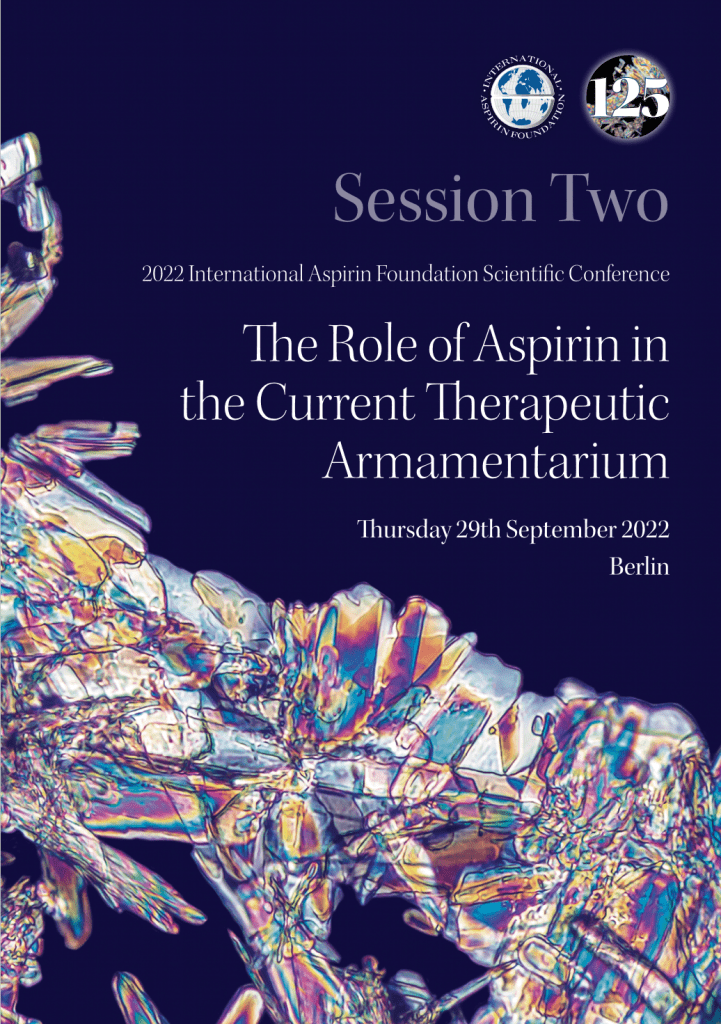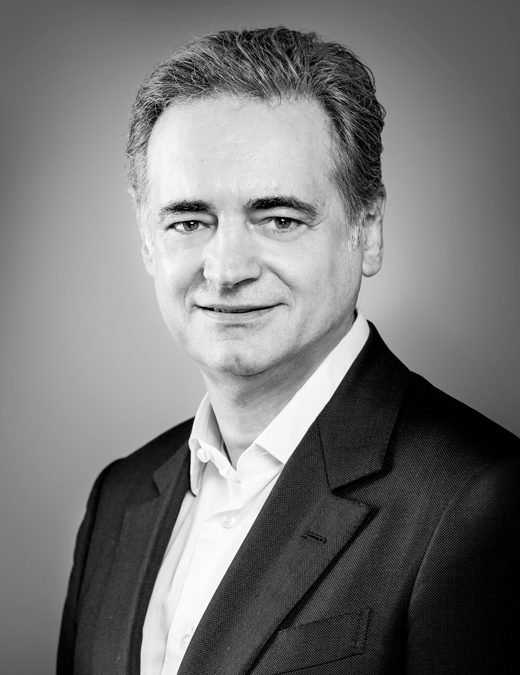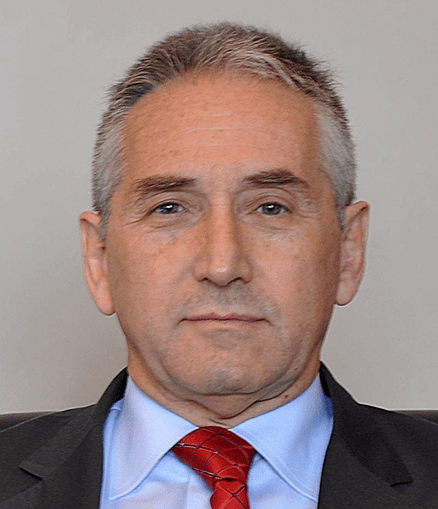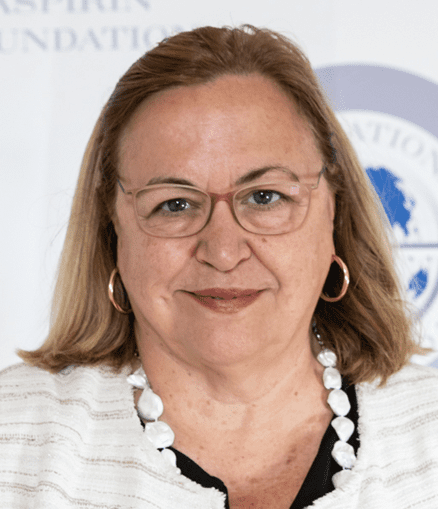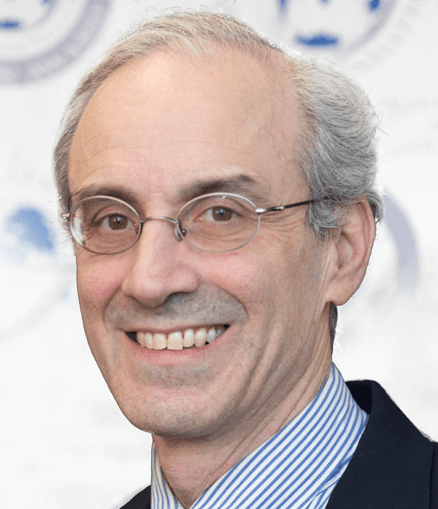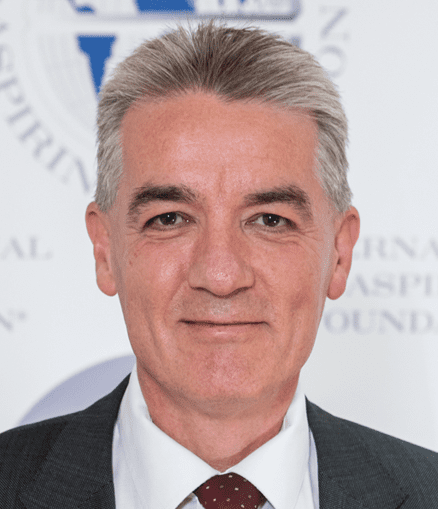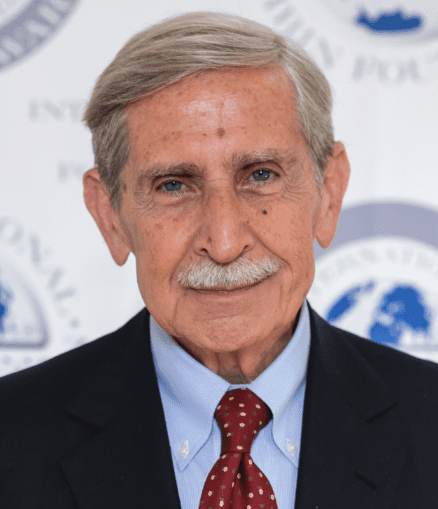The place of aspirin in Neurology
Chairpersons Pierre Amarenco (France) and Mathias Endres (Germany)
The place of aspirin in Neurology: Treatment vs Prevention
Peter Rothwell (UK)
Aspirin has been of interest and use in a number of neurological conditions, these are summarised in the article below where aspirin has a clear role in stroke, TIA and migraine prevention but has not been shown to be of benefit in depression, dementia, Parkinson’s disease or motor neurone disease.
In early data from Sir Richard Doll’s British Doctor aspirin cardiovascular (CVD) trial in the 1970s it was observed that daily aspirin reduced the frequency of seeking medical attention for migraine by around 30% in the aspirin versus control group. Aspirin has been found to work well at both low and high doses in migraine prevention an important indication in neurology.
Hippocrates recognised that the early signs seen in what we now call a TIA were warnings of a full stroke.
‘Unaccustomed attacks of numbness and anaesthesia are signs of impending apoplexy’ Hippocrates circa 400 BC
It was years later, in 1951, that Charles Miller Fisher termed these early warnings as a transient ischemic attack (TIA) and described their likely thrombotic aetiology. The Express1 and SOS TIA2 studies led by Peter Rothwell and Pierre Amarenco’s teams in the UK and France found an 80% reduction in the risk of recurrent stroke if aspirin is given acutely.
Despite public education programmes people can still be slow to seek medical attention for TIAs. Aspirin is recommended in UK guidelines and is something that first point of contact health care providers can give or recommend6,7. This is supported in online advice to the general public8.
Offer aspirin (300 mg daily), unless contraindicated, to people who have had a suspected TIA, to be started immediately.’ NICE NG 128 2019
Dr Lawrence Craven, California was the first to note that aspirin reduced MI and also proposed that it might prevent ‘little strokes’ in the 1950s 4,5. Years later the FDA approved aspirin to reduce the risk of stroke after TIA in men in 1980 and post MI in 1985.
In a time-course analysis looking at the effects of aspirin on both the risk and severity of early recurrent stroke after a TIA or ischemic stroke the greater benefit is seen in the first six weeks with less of an impact after 12 weeks3. Low-dose aspirin still works in the long term and analysis of the data if censored at the withdrawal of allocated treatment does show the effect of aspirin use long term. The time course event analysis shows that compliance with therapy is a major issue with the long-term efficacy of aspirin and in both cardiology and neurology this appears to be due to compliance with the drug rather than biology. There are major problems interpreting primary prevention trials due to adherence issues. It takes a lot of motivation to continue over 7-8 years taking a daily medicine when you are unsure if this is the active drug or placebo. It may be that people will adhere better in the real world when they know they are on an active medication shown to prevent disease. There may also be more benefits if primary CVD prevention medications such as aspirin are used at a younger age than currently seen in the clinical trials. Further work from the Antithrombotic Trialist (ATT) collaboration is expected.
When to take low-dose aspirin for stroke prevention is of interest. The risk of stroke increases in the late morning and reduces by late afternoon. Should aspirin be taken in the morning? Blood pressure medication trials have had mixed results and currently there is no data on when the best time might be to take aspirin or how this might impact on other regular medication.
In other areas of neurology, the ASPREE9 trial showed no benefit for aspirin in dementia, and there is no hint from RCTs of an effect with Parkinson’s disease or motor neurone disease. There is no confirmation from trial work that aspirin is helpful in depression. The ASPREE trial looked at depression and found no evidence of an effect of aspirin on incidence of depression in people that didn’t have a history of depression at baseline and no evidence of any benefit in terms of recurrent depression or worsening depression in people that were depressed at baseline.
In summary, neurologists commonly use aspirin for treating migraine. Aspirin is important in the acute phase of a stroke or TIA and should continue in the longer term for the secondary prevention of stroke. There may be a role for aspirin in primary stroke prevention, but current thinking is that it might need to be started at a younger age with good long-term adherence.
Importantly, in routine practice patients adhere to treatment regimens better than in trials, this is because they are on active treatment, with evidence that the drug works and they are motivated to comply with long term therapy.
References
- Rothwell PM, Giles MF, Chandratheva A et al. Effect of urgent treatment of transient ischaemic attack and minor stroke on early recurrent stroke (EXPRESS study): a prospective population-based sequential comparison. Lancet. 2007. 370(9596), 1432-1442
- Lavallée PC, Meseguer E, Abboud H et al. A transient ischaemic attack clinic with round-the-clock assess (SOS- TIA):feasibility and effects. Lancet Neurol. 2007 6(11):953-60
- Stroke and transient ischaemic attack in over 16s: diagnosis and initial management NICE guideline [NG128]Published: 01 May 2019 Last updated: 13 April 2022
https://www.nice.org.uk/guidance/ng128/chapter/recommendations - Australian Stroke Foundation Guidelines (downloaded 8/10/2020) https://informme.org.au/en/Guidelines/Clinical-Guidelines-for-Stroke-Management
- Transient Ischemic Attack https://www.nhs.uk/conditions/transient-ischaemic-attack-tia/
- Craven LL, Ann West Med Surg 1950;4:95-99
- Craven LL, M.Valley Med J 1953;75:38-44
- Rothwell PM, Algra A, Chen Z, Diener HC, Norrving B, Mehta Z. Effects of aspirin on risk and severity of early recurrent stroke after transient ischaemic attack and ischaemic stroke: time-course analysis of randomised trials. Lancet. 2016 Jul 23;388(10042):365-375. doi: 10.1016/S0140-6736(16)30468-8. Epub 2016 May 18. PMID: 27209146; PMCID: PMC5321490.
- Ryan J, Storey E, Murray AM, Woods RL, Wolfe R, Reid CM, Nelson MR, Chong TTJ, Williamson JD, Ward SA, Lockery JE, Orchard SG, Trevaks R, Kirpach B, Newman AB, Ernst ME, McNeil JJ, Shah RC; ASPREE Investigator Group. Randomized placebo-controlled trial of the effects of aspirin on dementia and cognitive decline. Neurology. 2020 Jul 21;95(3):e320-e331. doi: 10.1212/WNL.0000000000009277. Epub 2020 Mar 25. PMID: 32213642; PMCID: PMC745535
Round Table Discussion
Professors’ Scott Kasner (USA), Lawrence Wong (Hong Kong), Peter Rothwell (UK), Pierre Amarenco (France), Mathias Endres (Germany), Carlo Patrono (Italy), Bianca Rocca (Italy) and Dr John Chia (Singapore).
The discussion covered aspirin’s current place in neurology versus cardiology and summarised data for aspirin versus newer drugs but concluded there is no clear evidence or consensus for replacing aspirin in its current position in the guidance.
The advice to take aspirin before assessment in TIA was debated due to the small risk that intercranial bleeding may have caused the event. This risk is very small (less than 1%) and therefore overall, the risk versus benefit of lives saved from taking aspirin immediately is in favour of a benefit. However, immediate aspirin use before brain imaging diagnoses the cause of the stroke is a challenging message to give and is not without some controversy. Where possible using clinical judgement to assess risk factors can be helpful in deciding whether to give aspirin before imaging.
The Chinese Aspirin trial and a recent meta-analysis showed a clear aspirin benefit and as result it is widely used in China and across Asia. This population is also more at risk from haemorrhage and the side effects of aspirin but overall, the balance is in favour of a benefit. There is also more clopidogrel resistance in Asia with about half the population carrying the resistant gene mutation.
The best dosing regimen is still not fully resolved, this in part can be driven by BMI where at higher BMIs a more rapid platelet turnover is observed. Twice daily dosing is one solution in, for example, men with a higher body weight where aspirin is less effective. However, more evidence is needed to be able to offer clear guidance in this area. Weight based dosing is commonly used in paediatrics and it is interesting to explore this area in adults.

